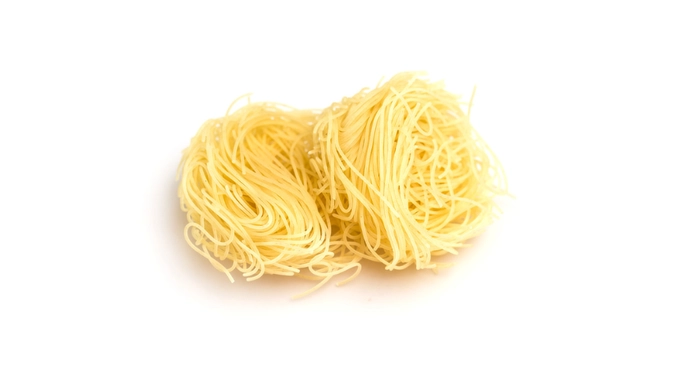Vermicelli, a type of thin pasta, is a staple food enjoyed worldwide for its delicious taste and versatility in cooking. But did you know that vermicelli is not only delicious but also highly nutritious? In this article, we'll explore the many benefits of incorporating vermicelli into your daily diet.
Introduction of Vermicelli
Vermicelli is a type of pasta that resembles thin, long strands. It is typically made from either wheat flour or rice flour, and sometimes even semolina. The dough is extruded through a machine to form the thin noodles, which are then dried and packaged for consumption.
Nutritional Value of Vermicelli
Vermicelli is a rich source of various nutrients that are essential for maintaining a healthy body. Here's a breakdown of the nutritional value of vermicelli:
- Carbohydrates: Vermicelli is primarily composed of carbohydrates, providing a good source of energy for the body.
- Protein: Depending on the type of flour used, vermicelli can provide a decent amount of protein. Wheat vermicelli, in particular, is higher in protein compared to rice vermicelli.
- Fiber: Vermicelli, especially when made from whole wheat flour, is a good source of dietary fiber. Fiber is important for maintaining a healthy digestive system and promoting feelings of fullness.
- Vitamins and Minerals: Vermicelli is a source of various vitamins and minerals, including B vitamins, iron, and calcium.
Health Benefits of Vermicelli
Incorporating vermicelli into your diet can provide numerous health benefits. Here are some of the key advantages:
- Aids Digestion: The fiber content in vermicelli helps to promote regular bowel movements and prevent constipation.
- Supports Heart Health: The complex carbohydrates in vermicelli are digested slowly, which helps to regulate blood sugar levels and reduce the risk of heart disease.
- Promotes Weight Management: Vermicelli is relatively low in calories and high in fiber, making it a filling and satisfying food choice that can aid in weight management.
- Boosts Energy Levels: The carbohydrates in vermicelli provide a steady source of energy, helping to keep you feeling energized throughout the day.
Recommended Quantity for Daily Consumption
The recommended quantity of vermicelli to consume daily depends on various factors, such as age, gender, and activity level. As a general guideline, the U.S. Department of Agriculture (USDA) recommends consuming 6-11 servings of grains per day, with at least half of those servings coming from whole grains.
One serving of vermicelli is typically around 1/2 cup of cooked pasta. Therefore, a reasonable daily intake of vermicelli would be around 1-2 servings as part of a balanced diet.
Uses of Vermicelli in Daily Life
Vermicelli is a versatile ingredient that can be used in a variety of dishes. Here are some common ways to incorporate vermicelli into your daily life:
- Breakfast: Vermicelli can be used to make a savory breakfast dish called "Seviyan" or "Sevai," which is popular in South Asian countries. It can also be used in sweet dishes like vermicelli pudding.
- Soups and Salads: Vermicelli can be added to soups and salads for extra texture and flavor.
- Main Dishes: Vermicelli can be used as a base for various main dishes, such as stir-fries, casseroles, and pasta bakes.
- Snacks: Vermicelli can be used to make crispy snacks, such as vermicelli fritters or vermicelli cutlets.
Conclusion
In conclusion, vermicelli is a nutritious and versatile ingredient that can be easily incorporated into your daily diet. With its numerous health benefits and culinary applications, vermicelli is a great choice for those looking to maintain a balanced and healthy lifestyle.


